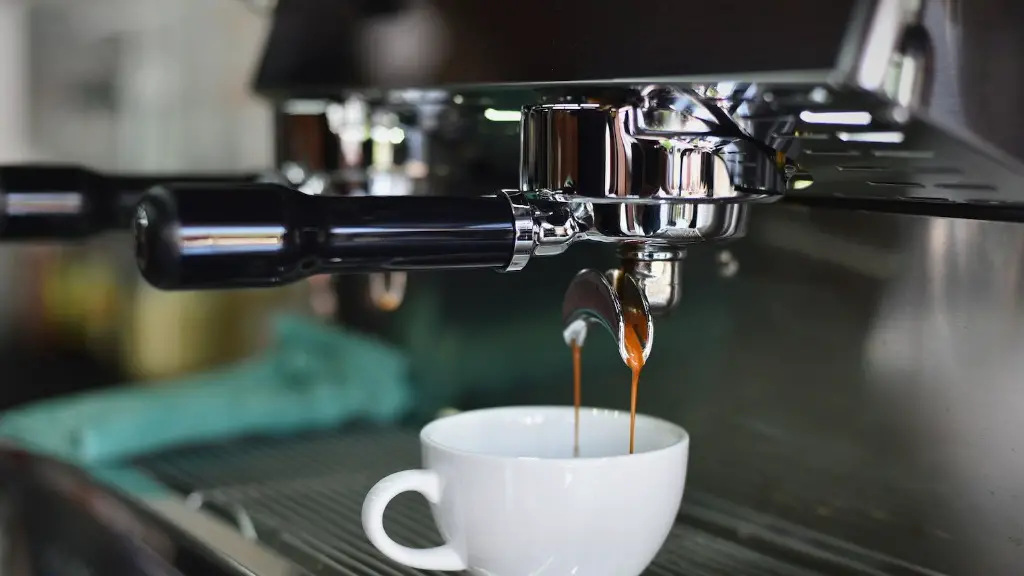Many people drink coffee religiously, and on days when they are required to take a biometric screening, they might question whether they can continue with their pre-screening coffee routine; the answer? It depends. Coffee can stay in the system for up to 12 hours, so it is important to determine how soon the biometric screening will take place and if it will interfere with the results. Before taking a biometric screening and enjoying a cup of coffee before or even after, it is necessary to know the facts about the process and potential risks.
An important factor to consider when drinking coffee before a biometric screening is the interval between consumption and the screening itself. Depending on the type and amount of coffee consumption, the time frame can vary significantly. For caffeine to be metabolized by the body it takes between two and four hours. Generally, biometric screenings are good indicators of baseline bodily functions and it is important to realize that, outside factors like consuming caffeine prior to the screening, can alter the results.Waiting for caffeine to clear the body is not only recommended but necessary if the results of the screening are to be trusted.
Coffee is known to alter bodily functions, more so, if consumed in a highly concentrated form. Some health experts argue that coffee could be beneficial before a biometric screening because people who consume caffeine have been noted to have increased nervous system function. This, combined with the fact that caffeine is known widely for its stimulating effects, may lead some individuals to think that a cup of coffee will help boost their physiology prior to the biometric screening. However, drinking too much coffee can have inconsistent and unpredictable effects, including, alertness, irritability, elevated blood sugar, and heart palpitations.
As a result, caffeine intake should be moderated if not avoided entirely, prior to a biometric screening. Every individual reacts differently to caffeine which, in some cases, can lead to a false-positive reading that renders the biometric screening inconclusive. If one continues with their regular coffee consumption, they could be affected and produce incorrect results.Most health professionals suggest that drinking coffee before biometric screening should be avoided if it can be.
Effects of Caffeine on Heart Rate and Blood Pressure
Caffeine can cause physiological changes in the body that can interfere or even distort biometric screening results. It is known to have a direct effect on heart rate and blood pressure, as it is known to increase the number of beats per minute and raise the systolic reading. When an individual drinks coffee prior to biometric screening, the results of their screening may differ depending on the amount of caffeine consumed.
One cup of brewed coffee contains up to 95mg of caffeine and can have an immediate effect on the heart rate. Consuming too much coffee before biometric screening may cause an artificially elevated blood pressure, which will result in an inconclusive reading and might require new readings to be taken.
The effects of coffee not only include a spike in heart rate, but also an elevated blood pressure, as caffeine is known to speed up the nervous system activity. As a result, regular drinker of coffee finds it hard to quit this habit before biometric screening if the process doesn’t allow it. This is why experts suggest avoiding coffee at least 4 to 5 hours before a biometric screening.
The Impact of Caffeine on Body Weight
In addition to the impact on blood pressure and heart rate, caffeine can also affect an individual’s body weight prior to a biometric screening. This is because caffeine is an appetite suppressant, meaning that consuming it can reduce the body’s natural urge to eat. This in turn can affect body weight and the results of biometric testing since the body will find it difficult to gain the necessary calories.
Furthermore, studies suggest that high levels of caffeine can increase metabolism, which could result in inaccurate plantar pressure readings in the biometric screening process. This could cause a person’s plantar pressure reading to increase dramatically, revealing incorrect results.
Caffeine and Biometric Screenings: A Rundown
When taking a biometric screening, it is important to understand the potential effects of caffeine on the body. While moderate coffee intake might not pose a risk, drinking too much coffee can affect heart rate and blood pressure, whilst also limiting an individual’s ability to get the necessary calories to fuel the body.In addition, studies have shown that caffeine can distort the results of pressure readings, so it is important to monitor one’s intake when taking a biometric screening.
Experts suggest avoiding coffee at least four to five hours before biometric screening. For those who cannot abstain from coffee for such a long period of time, it is recommended that one drinks only a limited amount and only in moderation. A cup of coffee, consumed 4 hours before the actual screening time, should not pose a risk, but be cautious as too much caffeine can distort the results of the biometric screening.
Does Caffeine Affect Other Biometric Screenings?
Coffee consumption can influence multiple forms of biometric screening, including body mass index and blood sugar level tests. Caffeine has a diuretic effect on the body which can lead to it losing more water than it can store. If a person consumes caffeine regularly, they may find their blood sugar level to be unnaturally elevated, and the results of their biometric screening may not match their baseline.
One’s biometric screening results can also be affected if they do not consume enough water before the actual test. Caffeine consumption further reduces the amount of water and electrolytes that the body is able to retain, so it can become difficult for an individual to achieve the desired hydration level prior to biometric screening. Consequently, this can lead to false-positive readings, so it is advisable to monitor one’s consumption of coffee and other caffeinated beverages.
Impact on Fatigue Tests
Caffeine may also play a role in biometric screenings relating to fatigue. Caffeine consumption can cause an uptick in alertness and energy, which may be seen as an anomalous reading in the biometric screening if too much has been consumed. Too much caffeine before biometric screenings for fatigue can also lead to irritability, which could also be seen in the results of the screening.
Further, drinking excessive amounts of caffeine can lead to anxiety, restlessness and an inability to focus, all of which can cause fatigue even if the individual has consumed caffeine to stay awake. As such, it is important to remember to limit one’s caffeine intake if they are being tested for an ability to concentrate, stay focused or be awake for long periods.
Is Coffee Consumption Before Biometric Screening Advisable?
Caffeine can have unpredictable effects on the outcomes of a biometric screening and increase the risk of false-positive results, so experts suggest avoiding coffee before the screening if possible.However, the actual amount of caffeine consumed, the interval between consumption and screening, as well as the individual’s specific metabolism, can influence the effects of caffeine on a biometric screening.In addition, caffeine can affect multiple forms of biometric screening, including tests relating to fatigue, body mass index and blood sugar level. As such, it is important to be mindful of one’s coffee intake prior to a biometric screening.




